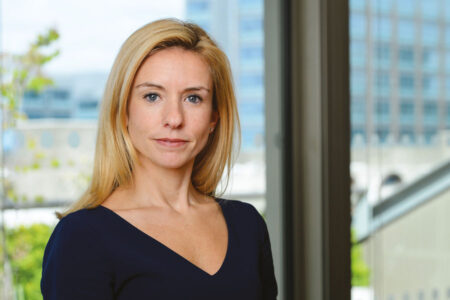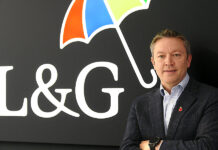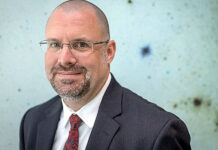
Serene Murphy, Head of Corporate Development for Europe & Asia at Tradeweb, talks market structure, adaptability and innovation.
Can you please tell me what is your day to day role?
A great aspect of my job is that there is a lot of variability in what happens day to day. I spend a large portion of my time connecting with colleagues, clients, fintechs, and peers to understand market trends, potential challenges and inefficiencies in our industry that Tradeweb can help address. Typically, my team and I have a pipeline of initiatives or potential deals that are all in different stages of development. Some of the earlier stage projects require market research, as well as coming up with lots of questions to challenge our assumptions and validate whether or not the initiative would be a good fit for Tradeweb.
More advanced projects will need a lot of planning, quantitative and qualitative analysis, and pitching internally and externally to articulate the opportunity set for Tradeweb. Once we have agreed on the final path or target, our team focuses on formulating an execution plan to bring it to fruition. Ultimately, my role involves working with a lot of different people and stakeholders to turn ideas into executable, fully-fledged projects.
Market conditions have been volatile, but what have you found to be the most challenging?
During times of volatility, market participants are rightly focused on navigating the challenging market conditions. A volatile environment can distract them and limit the time and attention they can pay into exploring new growth opportunities. In turn, this may delay a project’s completion date or even prevent it from getting off the ground in the first place. The flip side, however, is that stressed market conditions can highlight certain problem sets, and emphasise the need for change and innovation.
What skillsets are required for today and have they changed over the past couple of years?
Market structure has certainly become more complex, particularly over the past couple of years. Relentless technological innovation and a constant flow of new ideas combined with a more complicated regulatory environment and a fast-paced marketplace result in a lot of moving pieces to contemplate before we can start analysing opportunities.
For me, the biggest shift is dealing with the increased pace of change and trying to make the best assessment possible with all these different factors at play. That also creates great opportunities in terms of looking at new innovations or new startups and factoring in greater optionality with more potential paths ahead. You have to be more adaptable and creative than ever, and be able to evolve alongside the market to be successful today.
How did you get started in financial services and is this the career you envisioned? If not, what had been the plan?
Actually, I started out studying biology at Boston College with the intention of going into medicine. But after taking a few economics classes, I quickly realised how much more I enjoyed the lectures and debates with fellow students in my group. This feeling was reinforced when I had the opportunity to do a summer internship at Goldman Sachs. It was a fast-paced dynamic environment, where I was truly learning and being pushed to achieve my full potential, while using a broad set of skills. It truly felt like a much more natural fit for me.
I must admit I was very lucky during my internship at Goldman Sachs, because I was placed on the eCommerce team, way before eCommerce was considered en vogue. The team looked at market structure evolution, helping the capital markets division strategise and invest in a variety of companies, including trading platforms, exchanges, data companies, and clearing houses. It was an incredible introduction to my career and created a solid foundation for a path focused across market structure, technology, and capital markets.
What progress do you think women have made in financial services? How have things changed since you started?
I think women’s place in financial services is, thankfully, gradually changing and evolving. There is a lot of energy and focus on trying to recognise that a more diverse environment truly creates the best outcome. You get the broadest set of perspectives and skillsets to reach the right solution. We have made some good progress, but there is a ton of work that still needs to be done, and there is lots of room to further improve. Some aspects are moveable and others require willingness and openness towards changing perceptions.
For instance, the dynamic of having a family and simultaneously managing a career is often very different for women compared to men. Thankfully, some employers are taking steps to raise awareness and address the challenges around that, but that doesn’t remove the pressures you have as a mother. And for me, it’s been critical to establish a support structure with my family that allows me to focus on both my children and my career.
What needs to be done to move the needle further?
There absolutely needs to be more diversity in senior positions and that’s the right way forward. It’s important to ensure that everyone has access to appropriate training and the right opportunities to help them move up the career ladder. Both men and women can get involved in fostering a culture of equity and inclusion, and act as mentors to younger people eager to make their mark in our industry.
How does your firm support women and diversity, equity and inclusion (DEI) in general?
I firmly believe that diverse teams make better decisions and create greater long-term value. I see this view echoed throughout Tradeweb. We have a number of programmes and networks to help provide women with opportunities to both start and grow their careers. We have the Global Women’s Network, an employee affinity network that focuses on ensuring all women throughout the organisation have the appropriate support and access to all opportunities at Tradeweb.
There is also the Diversity, Equity and Inclusion Committee, which aims to cultivate and foster increased awareness, education, acceptance and advocacy regarding the many dimensions of diversity at the firm. More recently, we launched the Spotlight Dealer Diversity Program, a holistic initiative promoting our Minority-, Woman-, Veteran-, and Disabled-owned dealers and also helping facilitate business with global buy-side firms taking liquidity on Tradeweb. There’s always more that can be done, but the programmes and networks we offer are steps in the right direction.
How are you involved?
I’m a member of both the Women’s Network and our charitable giving network, Tradeweb Cares. I have also consistently been an active mentor, both formally and informally, since I joined Tradeweb 11 years ago. The 1:1 mentoring has been particularly rewarding. Looking back, one female colleague comes to mind. Through mentorship, she succeeded in raising her profile and highlighting her contributions to the firm. This led to amazing results, both in terms of increasing her own confidence and recognition within the company, and I feel privileged to have played a part in that. I’ve found that mentoring only works when both sides fully commit to the time and effort needed. When both the mentee and mentor follow through, then it’s a great pathway for success.
There is a plethora of awards for women in the financial sector. In your opinion, what still needs to happen before we no longer need gender-specific awards?
I think it’s very tough, there are just not enough women at senior levels out there still. We need greater representation across all levels, not just in financial services but across the board. We could do with more support programmes and mentorship and more training for women. The great thing about the European Women in Finance Awards is that we can use them to entice more young professionals to join the industry. Making our sector more appealing to women coupled with these awards can help with that.
It’s also important to ensure there is a clear and defined path for progress with the right opportunities along the way, when they get here. We have not reached that inflection point yet, and that is why award programmes are invaluable until there is greater improvement.
This article was first published in our sister publication, Best Execution <https://www.bestexecution.net/?p=20668>
©Markets Media Europe 2023
©Markets Media Europe 2025








